
Sex Down South, October 13-15, 2016, was born out of a desire to create a safe space in the Southeast where folks could explore sex and sexuality. Our focus is intentionally broad, catering to a diverse range of people: from those who are curious but not quite committed, to those who have been around the block…and then some! Our mission is to create a sex-positive space for people of all walks of life to come together, explore, connect, and share knowledge and skills. It’s your exploration destination for all things sex and erotic. Our goal is to foster learning, inspiration, and wonder – and provoke conversations that matter. From sex education and sexual health, to healthy communication and relationship skills; from alternative lifestyles such as kink and polyamory, to sex and spirituality and navigating sexual trauma. We’ll look at how race, gender, class, ability, religion, and other factors influence our experiences of our bodies and our sexualities. We’ll examine how our desires are directly linked to our empowerment and satisfaction in life. Sex Down South is a space for everyday people and “sexperts” alike to teach and share extraordinary things – and for participants to leave knowing more about their own sexualities and desires than when they arrived.
Location: Hilton Atlanta, 255 Courtland Street NE, Atlanta, GA 30303
Admission: $179-229 (day pass, student and volunteer discounts available)
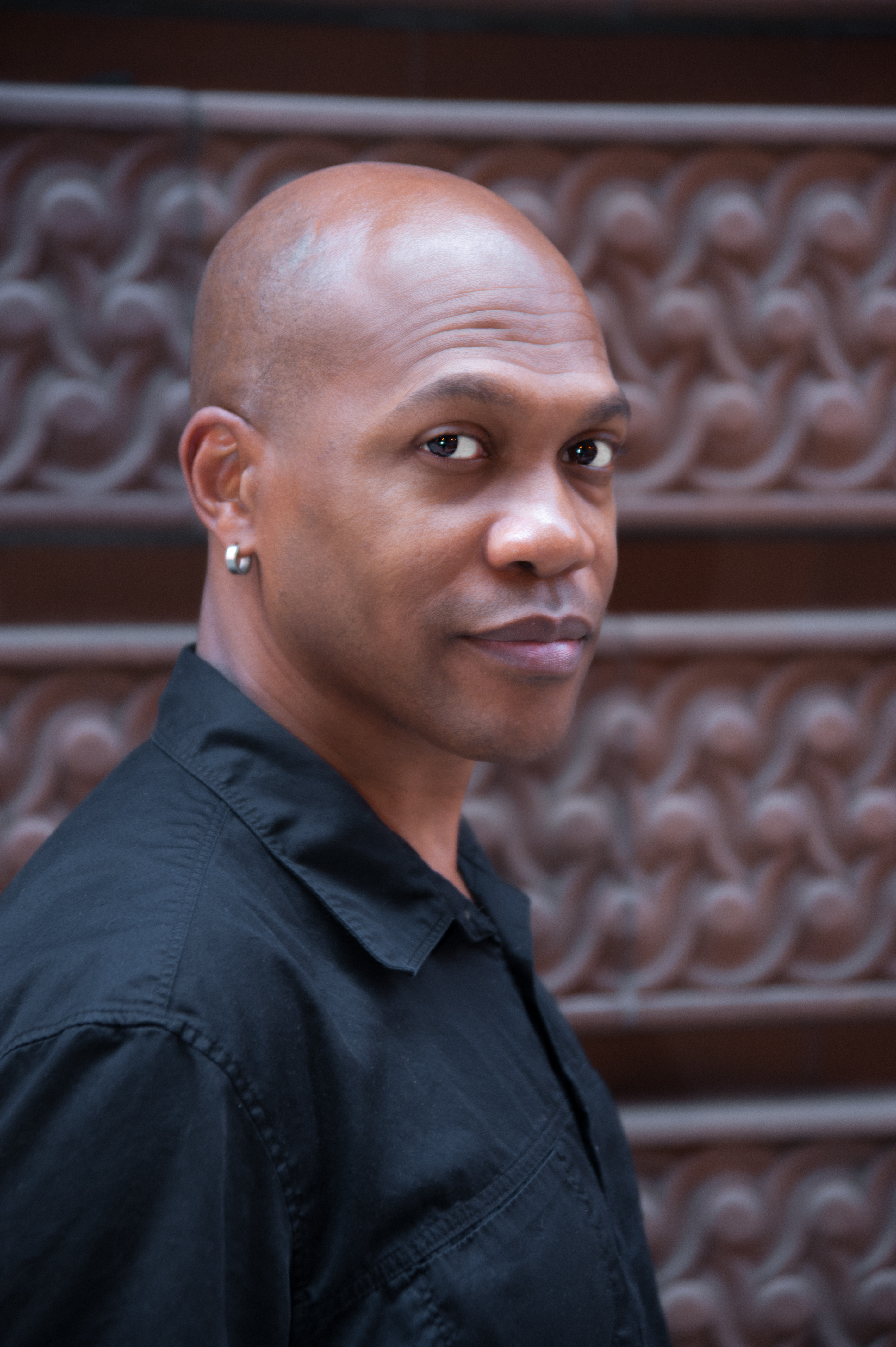
This week features my interview with scholar, writer & performer Dr. E. Patrick Johnson, author of Sweet Tea: Black Gay Men of the South, a collection of life stories from black gay men who were born, raised, and continue to live in the southern United States. Traveling to every southern state, Johnson conducted interviews with more than seventy black gay men between the ages 19 and 93. He adapted his book into a hit one-person show, including a recent run in Chicago presented by Project&. With complexity and raw emotion, Sweet Tea humanizes a community often forced to the outskirts of society. Poignant and often heart-wrenching, Johnson reinforces the spoken-word tradition while challenging stereotypes and finding humor, humanity and hope within. “Sweet Tea is not a show fixed in history,” says Jane M. Saks, Project& President and Artistic Director, “it is a production of this moment, lending its voice to the necessary global conversations around race, sexuality and identity.”
Tune in to the show on Friday, June 26th at 5 pm PT / 8 pm ET. Join the discussion on Facebook or Twitter. Sex Out Loud airs every Friday, you can listen along on your computer, tablet, or phone, find all the ways at SexOutLoudRadio.com.
E. Patrick Johnson is the Carlos Montezuma Professor of Performance Studies and African American Studies at Northwestern University. He is also a Project& artist. He is the author of Appropriating Blackness: Performance and the Politics of Authenticity and Sweet Tea: Black Gay Men of the South—An Oral History. He is the editor of Cultural Struggles: Performance, Ethnography, Praxis by Dwight Conquergood and co-editor (with Mae G. Henderson) of Black Queer Studies—A Critical Anthology and (with Ramon Rivera-Servera) of solo/black/woman: scripts, interviews, and essays and Blaktino Queer Performance. In 2009, he translated Sweet Tea into a full-length stage play, Sweet Tea—The Play. The show has been co-produced by Jane M. Saks and Project& with the following theaters: About Face Theater (Chicago); Signature Theatre (Arlington, VA); Durham Arts Council (Durham, NC); Towne Street Theater (Los Angeles), and the Wirtz Center for the Performing Arts at Northwestern University.
AMOROUS REVOLT
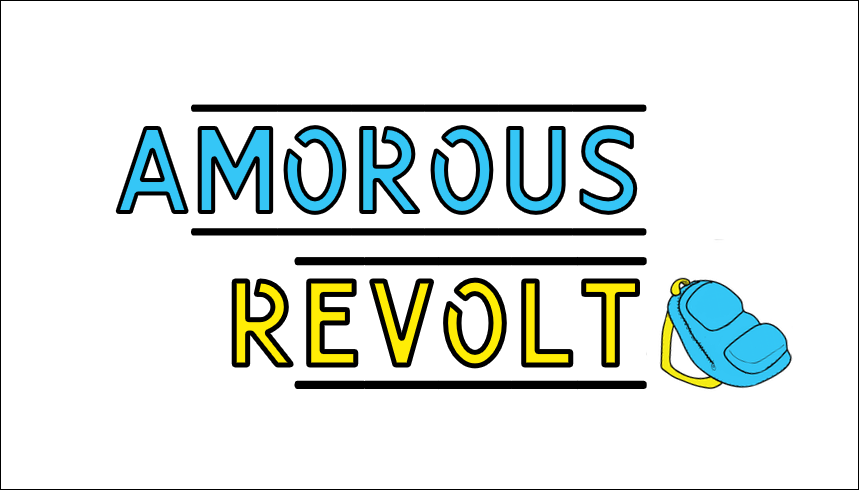
Amorous Revolt is a brand new Queer Camping event happening from July 31-August 2, 2015. This event is designed by queer people for queer people to build and foster intentional communities for support, education and play. Amorous Revolt features skillshares and workshops including kink, crafts, health, life skills and spirituality, as well as networking events, dance parties, and performances.
In an effort to make the event as accessible as possible, we have an organized rideshare system, ASL interpreters, 24/7 medical staff, and an emotional support space. We also have community organized cabin, play and workshop spaces for People of Color, Transgender/Gender Nonconforming People, Sober folks, and Neurodiverse folks.
Please join us at the first ever Amorous Revolt July 31-August 2, 2015 at Ramblewood in Darlington, Maryland. For more information visit our site or join us on Fetlife, Facebook, and Twitter.
ALSO in JULY….

In Dallas, Texas on July 24 2015, PolyDallas2015 is hosting the Affirming Polyamorous and Non-Monogamous Relationship Symposium. It is being held at the office of Vantage Point Counseling Services. This is the first symposium, with a primary focus on polyamorous relationship and family structure, to be held in the Dallas/Fort Worth [DFW] area. Co-Presenters Ruby B Johnson and Shawn Chrisman hope to contribute to the knowledge base of mental health practitioners and other community providers. For those attendees who are not in the DFW area, this symposium is offered as a live webinar stream.
Polyamorous and Non-Monogamous relationships have become more visible over the last decade. The way individuals, in their 20s to early 30s (Millennials), are relating, connecting, attracting, and permitting themselves to have non-traditional relationships is creating a more sex positive and dynamic relationship structure. However, Generation X proves to have a different experience and expectation of relationships and their structure.
Hence the exposure, experience, and knowledge base of these different relationships is mysterious to many mental health and substance abuse providers within the community. Demystifying and educating providers is key to providing a conducive non-shaming therapeutic environment. Providing knowledge is a practice of cultural competence; infusing cultural humility into practice creates authenticity and positive regard within the clinician.
To support these principles of the helping relationship, the content richly addresses definitions of polyamory and non-monogamy, coupled with a graph which offers a visual aid for attendees. Heteronormative and monogamous privilege is exposed as well as how those forms of privilege create challenges to provider’s beliefs, values, and norms of relationships. To assist with unpacking privilege, myths and misconceptions of these relationships are debunked. Next, the focus shifts to the therapist and other helping professionals.
With each one of the tenets of cultural humility, solutions, techniques, and suggestions for change are offered that include (not limited to) unconscious bias, racial bias, counter transference, professional boundaries, dual relationships, microaggressions,, social, political, economic bias, sex positivity versus sex addiction, and intellectual privilege (Dunning-Kruger Effect).
Certain theories have been shown to assist with effective practice such as systems, constructivism, Bowenian, feminist, and gender queer. Techniques such as the genogram, gender/relationship inclusive assessments, narrative versus structured assessment, collaborative (with client) treatment planning and interventions, including considerations for cultural, social, community, and services barriers. Additionally, one must be aware of community resources and support.
Please follow us on Twitter @polydallas2015.
Presenters:
Ruby B Johnson (LMSW, LCDC, SAP, CSAT Candidate) received her Bachelors of Social Work in 2003 from Texas Women’s University and her Masters of Social Work in 2005 from the University of Texas at Arlington. Since 2003, Ruby’s roles have included clinical practitioner, community and professional development educator, and graduate and under graduate adjunct professor. In private practice, her areas of expertise are substance use disorders, sex addiction, intimacy and love addiction, multi-cultural families and couples, SOGIE, polyamorous/non monogamous partnerships/families, and Kink/BDSM. Ruby Johnson provides therapeutic support, care, and intervention with lesbian, gay, bisexual, transgender, gender variant/non-binary, queer, and same gender loving communities. Currently, Ruby is in private practice at Vantage Point Counseling Services and Inamorata LLC.
She has presented at several national, state, and local conferences including Society of Social Work Research Conference, Council of Social Work Education Conference, DFW Behavioral Health Symposium, and, most recently, her proposals were accepted at The State Texas Association of Addiction Professionals Conference and Black Families, Black Relationships, and Black Sexuality Conference in Philadelphia. Ruby is a member of various professional organizations including Texas Association of Addiction Professionals [TAAP], Association of Addiction Professionals [NAADAC], International Institute of Trauma and Addiction Professionals [IITAP], American Association of Sexuality Educators, Counselors, and Therapists [AASECT], Society for Advancement of Sexual Health [SASH] and most recently, Association of Black Sexologists and Clinicians [ABSC].
Shawn Chrisman (MS, LPC, PhD Candidate) is currently a practicing Licensed Professional Counselor in the state of Texas. He received his clinical training with a Master’s in Counseling from Southern Methodist University, and is currently working towards his doctorate degree in Human Sexuality from Widener University.
Shawn works with individuals and couples on sexuality-related issues, including addressing intimacy, sexual identity, gender dysphoria, sexual dysfunctions and other concerns. Shawn also identifies as a kink-aware therapist and works with couples enjoying diverse relationship structures, such as open or polyamorous relationships. Shawn is an active member of American Association of Sexuality Educators, Counselors and Therapists (AASECT) and The Society for the Scientific Study of Sexuality (SSSS). He has also presented workshops for professionals and community members at local universities and organizations. Shawn has been published in Qualitative Health Research.

Madison Young as a pony girl on the set of Rough Sex 2
Last month, I gave a talk as part of an evening called The Truth Behind Fifty Shades of Grey at University of Maryland in College Park. There was a lively audience discussion, and we gave students the opportunity to ask questions anonymously. I asked several of my colleagues to chime in and answer a few of those questions.
Can it be hard to enjoy “vanilla” sex once you’ve escalated [to BDSM]? I’ve heard porn indulgence can desensitize people until they keep needing to escalate–is this the case with BDSM?
I asked my friend and colleague Felice Shays, a sex and BDSM educator, to take this one on. Listen to my fantastic interview with her on Sex Out Loud here. Felice says:
So, you are afraid to try things other than missionary positions, kissing, and other sexy acts because pot always leads to crack? And spanking always leads to bestiality? No, friend, don’t worry about escalation, as you call it. When you try out different things you’re figuring out what you like. Keep experimenting—add to what you and your partner enjoy; keep what works and don’t keep what doesn’t feel so good. But don’t be afraid to try something again down the road—what may feel eh today might feel off the charts next week. Watching lots of porn isn’t a bad thing unless it interferes in the healthy functioning of someone’s life (see Hernando Chaves’ discussion of sex addiction). People don’t get desensitized when watching lots of porn, hopefully they keep getting turned on. Their interests might shift over time, so what may have been a fantasy last month, may not be as hot this month. And yet other people love to watch the same kind of images throughout their lives. The good news is that sex is not like a runaway car, careening down a side of a mountain into the tiny town about to destroy the innocent townsfolk who live there. No. Instead, you get to make decisions about what you want, and when you want it. That includes if you want to gently kiss someone on their neck or press your teeth in a firm way against that flesh. Or if you want to be on top or you want to give or get it from behind. The other good news, is that no one gets to hold the truth to what vanilla or kink actually is. I can hear you say, “You know what I mean. Like spanking and dirty talk and like that.” And I say, what is someone’s “vanilla” may be someone else’s ‘you’ve gone a bit too far, pal’. And vice versa. My friend says she and her husband are vanilla, yet he holds the back of her head as she’s sucking him off. He’s not forcing her or choking her, just getting off on how pretty she is, how good he feels, his hand in her hair, his cock in her mouth. And she loves it too; feeling just the right amount of pressure on the back of her head that makes her feel high and hot.
That’s playing with power right there. And they consider themselves vanilla—not kinky.
So I can’t tell you what vanilla is. And frankly, I don’t really give’s a rat’s ass. I want you happy and turned on, not bored.
It’s about what turns you on and what your desires are.
Desire, like other tastes, change and morph as we gain experience in the world. And just because you love pizza, doesn’t mean you want to eat it every night.
Worry less and EXPLORE and EXPERIMENT more.
So when you add new ways of being sexy and sexual to getting it on, you might want to keep those new ways—plus any of the other ways you used to—whatever make you happy. And you probably won’t want to make love or fuck exactly the same way every time either. Mood, partner, time of day, if you’re high or drunk, all these things will affect what you want.
So if you try slapping someone’s face and realize you both really like it, the doors to vanilla are still yours to walk through. Cuddling, sex without an edge or ferocity, are still yours whenever you want it.
Keep open and curious—and don’t let fear run your sex, or your life, for that matter.
You are allowed to experiment explore and discover what you like.
ADD to your sexual vocabulary, don’t limit it.
Just think of the stories you will tell with all that new language.
It’s worth repeating: Worry less and EXPLORE more.
—Felice Shays, Sex and BDSM Educator. Follow Felice on Twitter @FeliceShays
Last month, I gave a talk as part of an evening called The Truth Behind Fifty Shades of Grey at University of Maryland in College Park. There was a lively audience discussion, and we gave students the opportunity to ask questions anonymously. Here are those questions with my responses. Note: I asked several of my colleagues to chime in and answer a few of the questions. Because several of them inspired longer answers, I will post those separately under Ask Tristan.
What is caning?
I’m going to quote an expert, Lolita Wolf, from her chapter, “Making an Impact: Spanking, Caning, and Flogging” in The Ultimate Guide to Kink:
Caning was traditional for severe punishment in the Victorian era and in the British school system, so canes can be the center of some great role play opportunities. Because of their perceived severity, canes have developed a reputation as the “scariest” of all BDSM impact toys, but a caning can be light and sensuous or heavy and painful—it’s all about how you wield the cane… Traditional canes are made of rattan, not bamboo or wood, and should be able to bend significantly.
Are there any races/ethnicities/religious groups that are members of the BDSM community?
People of all races and ethnicities practice BSDM, although some people of color have critiqued kink communities for being overwhelmingly white. Mollena Williams writes eloquently and teaches about the challenges of being a person of color in the BDSM community. There are some organizations and groups that cater specifically to kinky people of color including Poly Patao Productions and BlackBEAT.
Does the BDSM community have a higher percentage of LGBT people than mainstream sex?
People who practice BDSM comes from all walks of life and represent a diverse sampling in terms of gender, race, ethnicity, class, age, ability, and sexual orientation. LGBT people have varied sex lives, just as heterosexuals do; some are kinky, some aren’t, and some fall in between.
Do BDSM people date and marry, or just hook up?
BDSM folks are like everyone else in with regards to their sexual, romantic, and emotional relationships: they hook up, they date, they marry, they divorce, they have kids. In my research for my book Opening Up: A Guide to Creating and Sustaining Open Relationships, I found that there was a lot if overlap between BDSM communities and non-monogamous communities, so I think it might be that a higher percentage of BDSM people practice some form of consensual, ethical non-monogamy than the general population.
Has BDSM been shown to lower divorce rates?
There is limited research about BDSM and the people who practice it. There is no data that I know of that correlates BDSM with lower divorce rates. What I can tell you from personal experience is that many kinky folks have open, expansive views on sex, pleasure, relationships, and love plus above-average communication skills, and those elements can all contribute to the success of a marriage or relationship.
In the book Fifty Shades of Grey, when Christian and Anastasia communicate on a daily basis, Christian is always in charge. Do BDSM couples talk like that normally?
It depends. Some people adopt the roles of dominant and submissive during a scene (a scene is when people practice BDSM), but once the scene is done, they interact without those roles. Others may stay in role for a weekend. In those cases, when they are in role, the dominant takes charge and dictates how things go. Some people have dominant/submissive relationships where the power dynamic is always (or almost always) present. In all cases, as part of the negotiation process, dominants and submissives may agree to certain rules or protocols which dictate behavior. One such protocol could be that the dominant is in charge of what the submissive wears or the dominant decides what they eat for dinner. Another protocol could be that the submissive has to ask permission before speaking or always use an honorific when speaking to the dominant, like Sir. Protocols vary wildly, are particular to the people involved, and make sense to them; they are meant to represent and reinforce the power dynamic.
Is there a book or books that are more accurate to the BDSM community than Fifty Shades of Grey?
The Ultimate Guide to Kink: BDSM, Role Play and The Erotic Edge, 50 Shades of Kink: An Introduction to BDSM, SM 101: A Realistic Introduction, Playing Well With Others: Your Field Guide to Discovering, Exploring, and Navigating The Kink, Leather and BDSM Communities, The New Topping Book, The New Bottoming Book, Screw the Roses, Send Me The Thorns, as well as books by Jack Rinella, Lee Harrington, and Midori.
How do you find kink friendly professionals like doctors or therapists?
There are two great resources I recommend: Kink Aware Professionals and The Open List.
Is rape performed by BDSM people?
The word “performed” threw me a little because my interpretation of that word could lead me down two very different roads. On the one hand, are you asking, “Do BDSM people act out consensual rape fantasies?” The answer is yes, and a stellar resource all about those kinds of fantasies is Mollena Williams who wrote the chapter “Digging in the Dirt: The Lure of Taboo Role Play” in in The Ultimate Guide to Kink. But the other interpretation is, “Do BDSM people commit rape?” Unfortunately, the answer to that question is also yes. While the vast majority of folks who practice BDSM consider consent the cornerstone of their kink, that doesn’t mean that every kinky person is immune from sexual coercion, trauma, abuse, and violence. These things are still far too common in our society. For an excellent discussion about consent, sexual assault, and BDSM, I recommend Thomas’ series of posts on the blog Yes Means Yes.
Can BDSM be addictive?
Can it be hard to enjoy “vanilla” sex once you’ve escalated [to BDSM]? I’ve heard porn indulgence can desensitize people until they keep needing to escalate–is this the case with BDSM?
For this one, I asked my friend BDSM educator Felice Shays, and here is her response.

Eclair Bandersnatch mural at Center for Sex & Culture
As some of you may know, I was born on May 9, and this year, I’m thrilled to tell you exactly what I want for my birthday!
The Center for Sex & Culture (CSC) in San Francisco, founded by Carol Queen and Robert Lawrence, is a non-profit archive, library and community space for preserving and sharing information and artifacts of sexual identity, sexual products, and sexual ideas. It is a VITAL resource for sex-positive communities. CSC accepts donations year round, but May 9 is a special day. May 9, 2013 is the first national Give OUT Day for the Lesbian, Gay, Bisexual, Transgender and Queer community. Give OUT Day is a new national initiative that aims to mobilize thousands of individual donors on a single day across the country to give in support of the LGBTQ nonprofit community. It is a chance for LGBTQ groups large and small, to work across the wide range of issues and activities that matter to the LGBTQ community from sports to policy change, families to the arts. It is a chance for members of the LGBTQ community and our many allies to stand up and show our support for our community together on one day. In addition, The Horizon Foundation (The Bay Area’s LGBT Community Foundation) is sponsoring a challenge (The “Bay Area Leaderboard Prize”): It will award prize grants ($5,000, $2,500 and $1,000) to the top three small Bay Area non-profit organizations with the greatest number of unique donors at the end of Give OUT Day on Thursday, May 9. That’s right, it’s not about how much money they raise, it’s about how many people they can get to donate in one day, which means that any amount helps, even $5, but you’ve got to do it Thursday, May 9. Go to the Center for Sex and Culture Donation Page on Razoo and donate there (it’s important to use this link since they are tracking all the donations through it). You can even go beforehand and schedule your donation for May 9 by choosing “On a Giving Day” from the drop down menu. I am encouraging you to celebrate my birthday, support the important work of the Center and get more bang for your buck while you do it. Isn’t that appropriate?
Here is more information about The Center for Sex and Culture in Carol’s own words:
In 1994 my partner Robert and I (I’m author and sexologist Carol Queen, PhD) were visiting our friend Betty Dodson, sometimes known as “the Mother of Masturbation,” in her NY home. Why didn’t she bring her fabulous Bodysex workshop to the Bay Area? we asked. There wasn’t an appropriate venue there, she said. And then she said the words that begin the story of The Center for Sex & Culture: “You kids should start a place.”
Betty was right! Between us, we had connections in many sexuality-related communities. We both have doctorates in sexology; I worked at the legendary Good Vibrations and wrote for Spectator magazine, which had evolved from the old Berkeley Barb; I wrote stories and essays for zines and anthologies too, and was working on my first book, Exhibitionism for the Shy; we traveled around the US teaching, speaking, and meeting people from many sexual worlds, and were ourselves comfortable participants in many of these; and we’d both been directors at SF Sex Info. Together, we could relate and identify with much of the range of sexuality.
It took over 5 years of talking up the idea, but at last an angel donor helped us get over the fence: We corresponded with the IRS, got our non-profit status, and began looking for a space. Interns and donated materials came our way even before we had a room to house them. When we did get a place, we invited every sexually interested person over 18 to be part of it: as member, performer, teacher, patron, life-long learner. Academics and journalists began to visit to use our library and inspect our collections. Librarians descended on us, helping us to organize the many books and journals we’d amassed. (We believe we now have the largest publicly-accessibly sex library in the country — maybe the world!)
We host sex ed classes, and also cultural events. I deeply feel that, in the absence of good sex ed in the US, many of us learn about sex and develop our attitudes about sexuality via culture, and we want to participate fully in that discussion. We also support culture-making: through writing classes for sex workers; our award-winning Erotic Reading Circle; burlesque and dance classes; and our annual Nude Aid artmaking day. We also support community-based organizations, from BDSM/leather, to sex worker support groups, to the unique safer sex strategies of the SF Jacks. Our collections include Buzz Bense’s HIV/AIDS poster collection (these will hang in our gallery in Nov./Dec. 2013), materials from Pat Califia and Larry Townsend, a full run of On Our Backs magazine, Scarlot Harlot’s searchable database of sex worker interviews, and so much more.
We are all-volunteer, a labor of love and community for everyone involved. The next wave of core staff — a new librarian, a gallerist, archivists, and each year’s group of interns — came to us because of the cultural impacts of our collections; they are making them increasingly organized and accessible, and helping turn CSC into a venue for erotic artists who have few other places to exhibit their work.
We dream of publishing books, thus helping more non-Bay Area people join the conversation; and also want to put many of our events online, so we are even more a global community sex center than a local one. In the meantime, we hope you will visit us when you come to San Francisco! And thank you so very much for reading about our history and supporting us. Any donation helps us keep our doors open and take care of the materials our community has entrusted to us.
Wishing you pleasure and all the sex information you need!
—Carol, Robert, Dina, Marlene, Dorian, Anissa LibraryVixen, Tess, & the rest of your friends at the Center for Sex & Culture
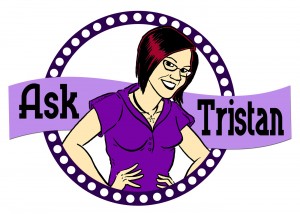
How can gender identity affect a sexual experience or a sexual relationship (even mentally)? How can we avoid gender identity becoming a point of contestation? We are both doms.
If you are trans* or your gender identity is complex, non-normative, fluid, genderqueer, or your body doesn’t entirely reflect your gender expression, it can absolutely affect your sexual experiences and relationships. As you begin to figure out your gender identity (knowing of course that it’s still not fixed and can change), share as much of that information as you can with your partner. This includes your relationship to your body, your preferred words for your body parts, how you want to be touched, and your sexual boundaries. Communicate with your partner about words that feel authentic and sexy in relation to your body and certain sex acts—words like dick, cock, cunt, pussy, as well as “fucking” or “making love”—can be loaded for people, no matter what their gender identity is, so ask your partner what words they use in regards to their own body and then respect those choices. It’s also helpful to stick to gender-neutral adjectives instead of nouns (hard, tight, wet, open, etc.). Your gender identity should not be a “point of contestation” between the two of you. The more comfortable you are with your gender identity, and the more you can talk about it with your partner, the more likely they are to understand it. Gender identity with regard to sexuality and sexual dynamics can vary for everyone, not just trans* and genderqueer people. For example, a straight man may want to be dominated and treated like a bad girl by his female partner, a lesbian may like to imagine she’s a straight man who’s seducing another man for the first time. We often get turned on by gender and sexual dynamics that don’t match our everyday gender on the street. Even when people aren’t explicitly roleplaying, there’s a certain energy dynamic that goes into the act itself that connects to our gender identity. Make a list of what gender identities you connect to in the bedroom (and which ones you don’t), share it with your partner, then have them do the same thing and find where you overlap and connect.
Recommended: Take Me There: Trans and Genderqueer Erotica, PoMoSexuals: Challenging Assumptions About Gender and Sexuality and Gender Outlaws: The Next Generation
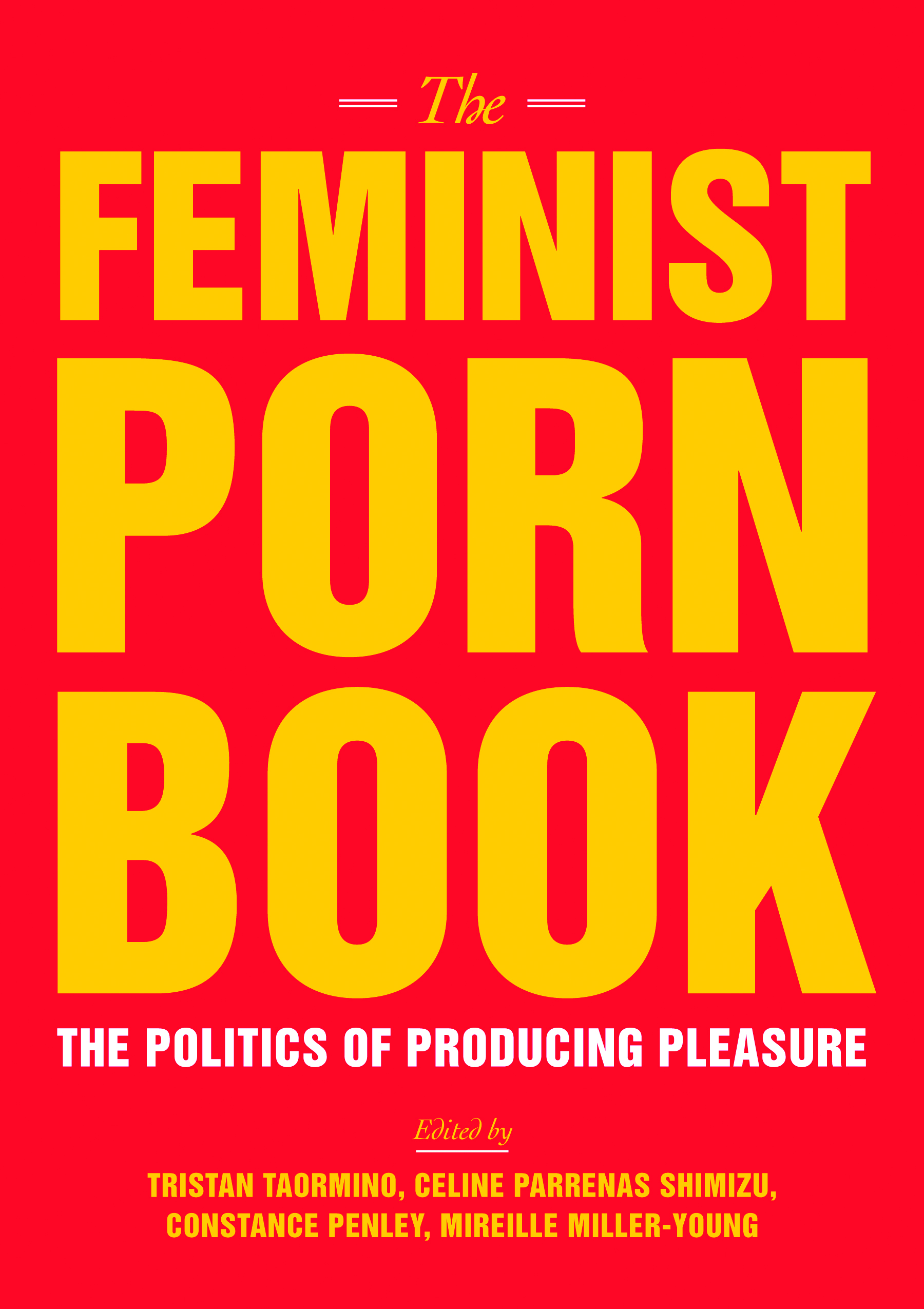
The Feminist Porn Book: The Politics of Producing Pleasure
is co-edited by Celine Parreñas-Shimizu, Constance Penley, Mireille Miller-Young, and me
and is published by The Feminist Press
The Feminist Porn Book brings together for the first time writings by feminists in the adult industry and research by feminist porn scholars. This book investigates not only how feminists understand pornography, but also how feminists do porn—that is, direct, act in, produce, and consume one of the world’s most lucrative and growing industries. With original contributions by Susie Bright, Candida Royalle, Betty Dodson, Nina Hartley, Buck Angel, Lynn Comella, Jane Ward, Ariane Cruz, Kevin Heffernan, and more, The Feminist Porn Book updates the arguments of the porn wars of the 1980s, which sharply divided the women’s movement, and identifies pornography as a form of expression and labor in which women and racial and sexual minorities produce power and pleasure. Check out the book’s official website to read the table of contents and see what people like Melissa Harris-Perry, Laura Kipnis, Jack Halberstam, Lisa Duggan, Carol Queen, Annie Sprinkle, and other luminaries have said about it. I am so unbelievably excited that The Feminist Porn Book is here! This is a project that is five years in the making, and I cannot believe it’s in print.
Inspired by the book, I am producing The Feminist Porn Conference, a one-day event on April 6, 2013 at the University of Toronto during the Good For Her Feminist Porn Awards festivities. Speakers include Lynn Comella, Ariane Cruz, Loree Erickson, April Flores, Kevin Heffernan, Tobi Hill-Meyer, Shine Louise Houston, Jiz Lee, Nicholas Matte, Mireille Miller-Young, Ms. Naughty, Nenna, Bobby Noble, Celine Parreñas-Shimizu, Constance Penley, Carol Queen, Dylan Ryan, Tristan Taormino, Courtney Trouble, Madison Young, and more to be confirmed soon. Registration is now open, and Early Bird Registration Rates are good through March 1, so register today! Our host hotel is the Holiday Inn; get our special discount code here. Special thanks to our sponsors Mark S. Bonham Centre for Sexual Diversity Studies, Good for Her, The Feminist Porn Awards, and The Feminist Press.
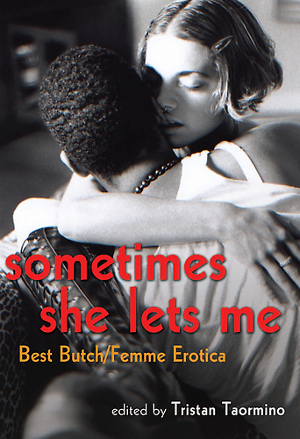
I am so thrilled to announce the release of the audio book version of my Lambda Literary Award-winning anthology Sometimes She Lets Me: Best Butch/Femme Erotica. It’s available on Amazon and Audible (you can even listen to a sample at Audible). First, I am just excited that the audio book market has really exploded recently, and audio book versions of several of my books have already been produced, including Best Lesbian Erotica 2007, Best Lesbian Erotica 2009, Best of the Best Lesbian Erotica, Hot Lesbian Erotica, and Opening Up: A Guide to Creating and Sustaining Open Relationships (and coming soon: Down and Dirty Sex Secrets!). I think erotica books make especially good material for audio (of course) and queer erotica is where I got my start so it’s close to my heart. But what makes this one extra special is that I co-produced and narrated it! That’s right, here’s your chance to hear more than 7 hours of me talking dirty to you, reading smutty stories by folks like S. Bear Bergman, Toni Amato, D. Alexandria, Peggy Munson, Sinclair Sexsmith, Elaine Miller, Amie M. Evans, Alison Smith, and more. You’ll hear tales of the new femme in town and the butch pastry chef, the cop who passes as a guy and picks up straight girls at hip hop clubs, porn-watching butches who can’t keep their hands off each other, a sexy game of hide and seek in the woods, what happens when a femme trolls the personals for a date, one girl’s revenge on sweet-talking butches, a threesome with a power couple, girl-on-girl lipstick smearing, poetic public sex and some particularly incendiary roleplay. The stories are filled with dominant Daddies, butches with swagger, fierce femmes, strippers and sex workers, longtime lovers, femme tops, and plenty more. I promise you: it’s a good time! My producer and engineer on this project is a superstar in his own right: Dylan Keefe. Dylan is part of the team of geniuses who work on public radio show Radiolab and the bass player for Marcy Playground, an awesome 90s band famous for the song “Sex and Candy.” Dylan and I had so much fun in the studio together recording this, and we hope to collaborate on more projects together. I hope you’ll check it out, tell your friends, and enjoy this porn for your ears!
This week’s episode of Sex Out Loud has two different guests talking about their work giving voice to sexual minorities who are often marginalized in the community. Dr. Eli Sheff will talk about her new book based on her groundbreaking work with Polyamorous Family Study, a 16 year project. The mission of the Polyamorous Family Study is to provide high-quality, research-based information about poly families with kids using sound research methods based in years of sociological study. Sinclair Sexsmith is the kinky butch top behind the the popular Sugarbutch Chronicles. They’re also a writer, storyteller, and performer who studies critical feminist & gender theory, sexual freedom, social change activism, archetypes, and the tantric and buddhist spiritual systems.
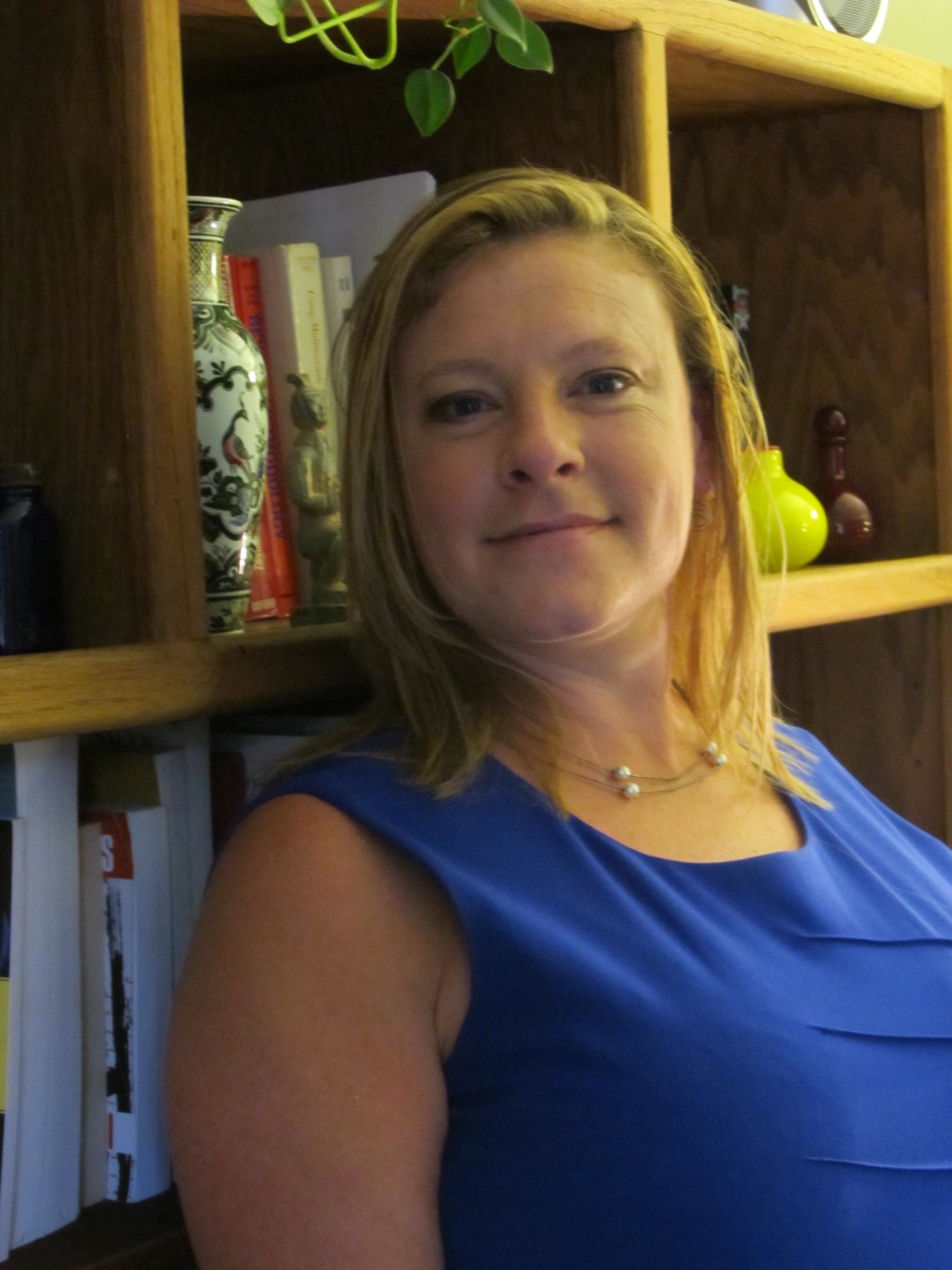 A pioneer in research on polyamory, Dr. Elisabeth “Eli” Sheff is the foremost academic expert on polyamory in the US, and the worldwide expert on poly families with children, having conducted the only longitudinal analysis of poly families with children to date. After teaching Sociology for 15 years at three universities, Dr. Sheff established the Sheff Consulting Group (SCG), a think-tank of academicians and professionals who specialize in legal and educational services for unconventional populations, and those who need to know about them. As the Senior Legal Consultant at SCG, Dr. Sheff specializes in families of sexual minorities, providing expert witness services, home evaluations for unconventional families facing child custody issues or attempting to adopt kids, andcontinuing education to lawyers, educators, counselors, and therapists. Her book The Polyamorists Next Door: Inside Multiple Partner Relationships and Families is being published by Rowman and Littlefield in 2013.
A pioneer in research on polyamory, Dr. Elisabeth “Eli” Sheff is the foremost academic expert on polyamory in the US, and the worldwide expert on poly families with children, having conducted the only longitudinal analysis of poly families with children to date. After teaching Sociology for 15 years at three universities, Dr. Sheff established the Sheff Consulting Group (SCG), a think-tank of academicians and professionals who specialize in legal and educational services for unconventional populations, and those who need to know about them. As the Senior Legal Consultant at SCG, Dr. Sheff specializes in families of sexual minorities, providing expert witness services, home evaluations for unconventional families facing child custody issues or attempting to adopt kids, andcontinuing education to lawyers, educators, counselors, and therapists. Her book The Polyamorists Next Door: Inside Multiple Partner Relationships and Families is being published by Rowman and Littlefield in 2013.
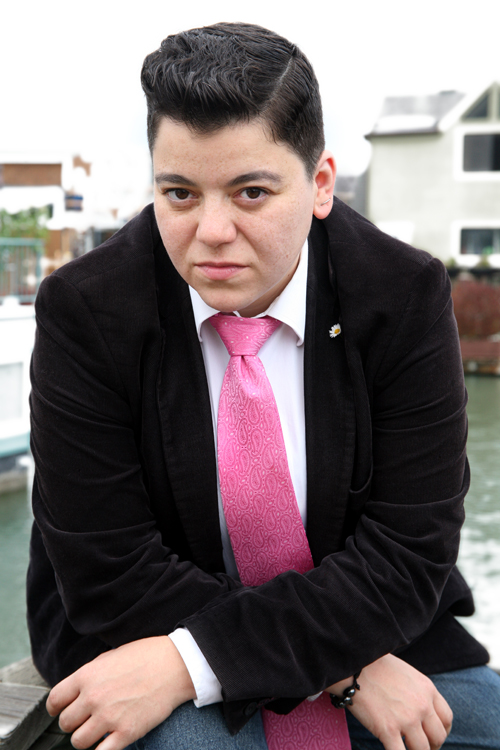
Sinclair Sexsmith (MrSexsmith.com) writes the award-winning personal online project Sugarbutch Chronicles: The Sex, Gender, and Relationship Adventures of a Kinky Queer Butch Top at SugarButch.net. They have contributed to more than a dozen anthologies, and is the editor of Say Please: Lesbian BDSM Erotica. They teach workshops ongender and sexuality throughout the US, including at various colleges.


